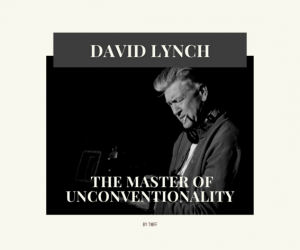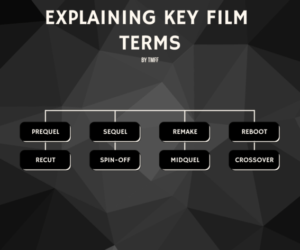With just about everything in life, there are general rules as to how one thing or another mainly functions, but there are also exceptions to those rules. One such rule states that in at least 9 out of 10 cases, film adaptations after books, comic books or videogames are not exactly top notch. And the terminology utilised is a polite understatement.
Of course, it is easy to see how things can go wrong, and those responsible with the adaptation have to walk a really, really thin line. Try to cram as much of the book’s details into the film, and it becomes a rushed, unintelligible mess. Feature too little of the substance which made the book a hit with its reader base, and you’ll offer a coherent, but heavily diluted product. Stray away from the original source’s framework, and hardcore fans might try to find out where you leave, and fantasise about killing you as brutally as possible. Not easy, is it?
A rule wouldn’t be a rule without exceptions to it, and this is also the case of film adaptations from books or any other kind of material, really. Down below you’ll find a number of titles which I personally hold in higher regard than the book which inspired them, in no particular order.
1. The Godfather (1972)
Many believe this to be the best film ever made. Not one friend of mine, apparently. Years ago, when I asked him ‘Hey, do you like The Godfather?’, he replied with the following words: ‘Yes, it’s an awesome book!’. Dumbfounded, I could barely utter: ‘Uh…there’s…a…book?’. Oh yes, Mario Puzo’s book came out three years before the original film, and it’s a damn good one, to be perfectly honest. But not as good as Francis Ford Coppola’s film, featuring Marlon Brando, Al Pacino, James Caan and Robert Duvall.
2. A Clockwork Orange (1971)
When it came out in 1962, the homonymous novel by Anthony Burgess was well received by readers, who were fascinated by the allure of almost Orwellian absurdism of a different flavour. However, it wasn’t until 1971 that the true potential of the original source was reaped – by none other than master Stanley Kubrick. Make no mistake, I don’t want to sing Kubrick’s praise with regard to every project he adapted – I find his The Shining to be a poorly tailored product when compared to the original source – but this time, as it happened with the honourable mentions of 2001: A Space Odyssey (1968) and Dr Strangelove Or How I Learned to Stop Worrying and Love the Bomb (1964), the man was absolutely spot on.
3. The Shawshank Redemption (1994)
Ah, everybody’s all-time favourite film on IMDb. What a wonderful, awe-inspiring cinematographic experience this was. This is perhaps the only film in this top which is miles, miles away in front in terms of quality when compared to its original source, a short novella written by Stephen King titled Rita Hayworth and the Shawshank Redemption, which was okay, but nothing special, really. Frank Darabont and the perfectly cast Morgan Freeman and Tim Robbins make this project the undisputed victor in the eventuality of a contest organised for the purpose of debating which one film should the human race send into space as proof of intelligent life.
4. The Green Mile (1999)
Well well well, another Darabont-King combination, and another place in this esteemed top. Is Stephen such a terrible writer that he constantly needs other people to turn his projects into something memorable? No, not at all. It simply happens that Darabont had a soft spot for King’s non-horror drama, and he did a terrific job once again. Once more, perfect casting decisions were made – with what is probably one of Tom Hanks’ most heartfelt roles beautifully intertwining with Michael Clarke Duncan’s otherworldly acting – and thus resulting into something truly memorable. How Darabont, who spent the ’90s making awe-inspiring films, ended up producing cheap post-apocalyptic drama such as The Walking Dead is completely beyond me.
5. No Country For Old Men (2007)
When Cormac McCarthy, likely the greatest American writer of his generation, teams up with the Coen Brothers, perhaps the best American directing-duo of their generation, there’s not much that could go wrong. And nothing does go wrong with this project: the film improves upon the already magnificent book in almost every way, and remains an important reference point in the history of filmmaking.
6. The Silence of the Lambs (1991)
Oh, this is a difficult one alright. The 1988 novel written by Thomas Harris is an extremely well-written piece, and even so, I do believe that Jonathan Demme’s adaptation is slightly better. The cinematography is an outright masterpiece, the score is hauntingly beautiful and the chemistry between the two main actors, Antony Hopkins and Jodie Foster, is something to behold and constantly marvel at.
7. One Flew Over The Cuckoo’s Nest (1975)
The last one on this list is, just like the one before, an extremely difficult case to exhibit a preferential treatment for the film versus the book. Yes, Ken Kesey’s novel bearing the same name is a masterpiece, but Miloš Forman’s film starring Jack Nicholson in the main role switches the narrative perspective and thus offers, I dare say, a more involving, dynamic and personal result. I would kindly request not to be assassinated for my above words. Kind thanks.
Some of my honourable mentions include: Psycho (1960), Jackie Brown (1997), Mystic River (2003), The Prestige (2006), Requiem for a Dream (2000), Shutter Island (2010), American Psycho (2000), There Will Be Blood (2007), Donnie Brasco (1997), Cape Fear (1991) and The Thing (1982).
One more thing: kindly refrain from adapting material which is already utter rubbish to begin with. Shout out to a certain book starting with the numeral 50 and ending in the colour grey. The entire world will be in your debt, trust me!
















